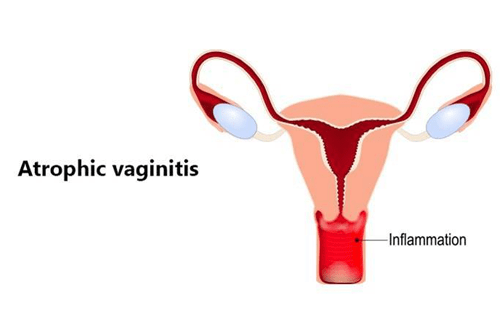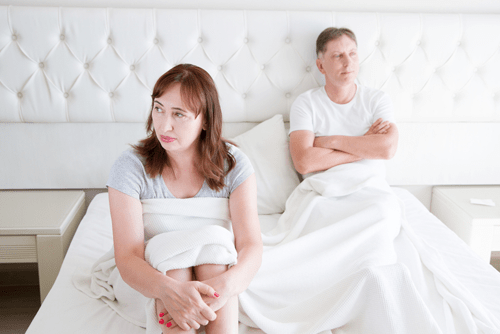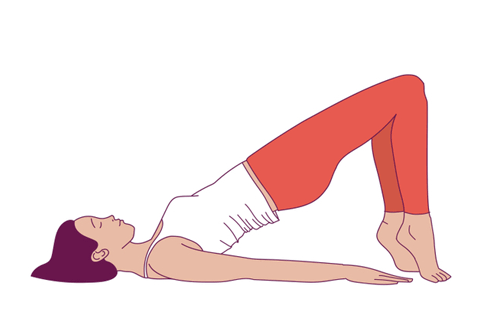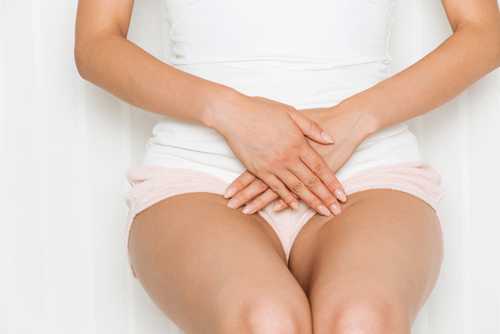Why to settle for “it’s just a sign of aging”… we all know
Your body changes as you age but it doesn’t mean you have to suffer from vaginal dryness. Vaginal dryness is a common condition associated with menopause that can have a significant impact on your quality of life.
Vaginal dryness is commonly associated with decreased hormone levels. Low estrogen causes thinning of the lining of the vagina (atrophic vaginitis). Thinning vaginal tissue leads to pain with intercourse (dyspareunia), which may cause a woman to avoid intercourse altogether. Scarring of your lady parts can put a real strain on your relationship, you can’t just force it. so before throwing in the towel, seek help! A leaky bladder and vaginal pressure can put additional strain on your confidence when it comes to intimate wellness.

Atrophic vaginitis is increasing in the general population as women are living longer. Yet, many women may not associate it with a condition that can be treated. Atrophic vaginitis is a common problem in postmenopausal women. A decline in estrogen hormone production contributes to Atrophic Vaginitis is part of a condition called
Genitourinary Syndrome of Menopause. The symptoms of atrophic vaginitis can be relieved with Over-the-counter products and prescription medications to alleviate symptoms associated with atrophic vaginitis. Hormones replacement plays a huge factor and can be applied in the vaginal with only a small amount of systemic absorption. When the vaginal is atrophic it can lead to an abnormal discharge and bleeding as lower amounts of estrogen during the menopausal age range leads to a change in the vaginal pH, this can result in an unpleasant discharge. When the vaginal tissue is dry, this can result in vaginal bleeding and pain that may prevent you from enjoying intercourse.
Lichen Sclerosus
Lichen sclerosis can cause intense itching and pain of the vagina. It is a serious condition that can be caused by an overactive immune system, which results in the narrowing of the introitus, or opening to the vagina, due to scarring. The narrowing and skin destruction associated with lichen sclerosis is further compromised with lower levels of naturally produced estrogen associated with menopause. The narrowing can cause uncomfortable pain and bleeding with intercourse. A diagnosis is usually made with a biopsy, and the treatment is typically a long-term sequence of topical steroid creams. The key is that there is a treatment and when traditional treatment does not work there are alternative measures using your own Stem cells that can do the job.
Painful intercourse (Dyspareunia)
Dyspareunia

Dyspareunia, or pain with intercourse, can greatly affect any relationship. The reasons for pain associated with intercourse vary. Lack of moisture, bladder and uterine prolapse. Or a problem that you’ve had all of your life, associated with the position of the uterus tilted downward, known as a retroverted uterus. A retroverted uterus can cause discomfort and pain from the partner hitting the tilted uterus. This is easily resolved by a position change that prevents deep penetration. An examination with your OBGYN is needed to help determine your cause of dyspareunia and treatment can be determined.
Pressure Sensation or Pelvic Organ Prolapse

Pelvic organ prolapse occurs in up to 50 percent of women who have given birth. prolapse can occur at different sites within the vagina. There are many ways to correct pelvic organ prolapse including Kegel exercises, pelvic floor therapy losing weight, and avoiding heavy lifting. Surgery is resolved for the most advanced degrees of prolapse. Prolapse is when the bladder appears to fall out or your rectum can pooch out. Sometimes the uterus falls out. Don’t fret, it can be corrected with surgery or symptoms can be relieved with the use of a pessary.
Leaky bladder

When the pelvic floor weakens it can lead to the weakening of the bladder and bladder leaks. A leaky bladder can leave the vulva wet from urine and make you more susceptible to yeast infections. Correcting the underlying problem could be the answer you’ve been looking for. Strengthening the pelvic floor with Kegel exercises and pelvic floor rehab may save you from embarrassing leaks. When these measures fail to work a simple surgical correction could be the ultimate answer.
Your body changes as you age but it doesn’t mean you have to suffer from any of the common causes of vaginal dryness. Follow up with your OBGYN for a pelvic exam and the best management for your symptoms.

